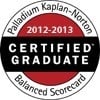Understanding Website SEO Grade
Boost your website traffic and improve your online presence
If you want your website to be easily discoverable by potential customers, understanding SEO is crucial. SEO, or search engine optimization, is the process of optimizing your website's content and structure to increase its visibility and ranking in search engine results pages.

This is important because the higher your website ranks, the more likely it is that users will click on your website and visit it. By checking your website's SEO grade, you can identify areas that need improvement and take necessary steps to optimize your website for higher search engine rankings. A high SEO grade means increased organic traffic, better user experience, and higher conversion rates. Conversely, a low SEO grade can negatively impact your website's search engine visibility, decrease traffic, and harm your online reputation.
How to Improve Search Engine Ranks
By following search engine rankings improvement best practices such as keyword research (to find relevant keywords) and optimization, on-page optimization, and avoiding common SEO mistakes, you can improve your website's SEO grade and attract more traffic to your site. Utilizing SEO analysis tools like Google Analytics, Google Search Console and SEMrush can also help you track your progress and make necessary adjustments to your SEO strategy.
.png?width=2604&height=3612&name=How%20to%20Improve%20Your%20Websites%20Search%20Engine%20Ranking%20-%20visual%20selection(7).png)
What is SEO?
SEO, or search engine optimization, is a critical aspect of improving your website's visibility and attracting more traffic. Essentially, SEO is the process of optimizing your website's content and structure to rank higher in search engine results pages. By doing so, you increase the likelihood of potential customers clicking on your website and visiting it.
Why it's Important
A higher SEO grade means more organic traffic, better user experience, and higher conversion rates. Conversely, a low SEO grade can negatively impact your website's search engine visibility, decreasing traffic and harming your online reputation. To improve your SEO grade, follow best practices such as keyword research and optimization, on-page optimization, and avoiding common SEO mistakes. Additionally, SEO analysis tools like Google Analytics, Google Search Console and SEMrush can help you track your progress and make necessary adjustments to your SEO strategy.
How is SEO Grade Calculated?
Key factors that impact your SEO Grade and knowing how to check your website's SEO Grade are crucial in improving your online presence. One of the key factors is target keyword research to identify target keywords and then optimizing your website for these tareget keywords. This involves identifying the right keywords to use on your website and optimizing them to rank higher in search engine results pages. On-page optimization is also crucial, as it involves optimizing your website's title tags, meta descriptions, header tags, and images.
By avoiding common SEO mistakes like keyword stuffing and black hat SEO techniques, you can improve your website's search engine ranking and attract more traffic to your site. To check your website's SEO grade, you can use a free SEO Grader tool that analyzes your website's performance and provides a detailed report on areas that need improvement. By following best practices and utilizing SEO analysis tools, you can achieve a high SEO grade, increase organic traffic, improve user experience, and see higher conversion rates.
.png?width=3828&height=3108&name=How%20to%20Improve%20Your%20Websites%20Search%20Engine%20Ranking%20-%20visual%20selection(2).png)
Why SEO Grade Matters
Short answer - it helps improve your website's visibility and attract more traffic. Local SEO, by which I mean SEO optimized to drive traffic to specific businesses in specific locations, relies on having a highly SEO optimized website to get your business to show up in local search results.
Benefits of a High SEO Grade
A high SEO grade means more than just improved visibility on search engine results pages. It means better search rankings. It translates to increased organic traffic, better user experience, and higher conversion rates. By optimizing your website's content and structure, potential customers are more likely to click on your website and visit it. This improved user experience can lead to higher conversion rates, as visitors are more likely to engage with your website and take desired actions such as making a purchase or filling out a contact form.
On the other hand, a low SEO grade can negatively impact your online reputation and result in decreased traffic. By following best practices such as keyword research and optimization, on-page optimization, and avoiding common SEO mistakes, you can achieve a high SEO grade and see the benefits of increased organic traffic, better user experience, and higher conversion rates.
.png?width=4620&height=3324&name=How%20to%20Improve%20Your%20Websites%20Search%20Engine%20Ranking%20-%20visual%20selection(3).png)
Consequences of a Low SEO Grade
A poor SEO grade can have serious consequences for your online presence. One of the most significant impacts is poor search engine visibility. When your website fails to rank high in search engine results pages (SERPs), potential customers are less likely to discover your website. This results in decreased website traffic, which can harm your online reputation.
A low SEO grade can signal to search engines that your website is not relevant or trustworthy, leading to a negative impact on your online reputation. To avoid these consequences, it's crucial to prioritize SEO optimization and follow best practices such as keyword research and optimization, on-page optimization, and avoiding common SEO mistakes. By implementing these strategies, you can improve your website's search engine ranking and attract more traffic to your site.
Tips to Improve Your SEO Grade
Boost your website's search engine ranking with these strategies
Keyword Research and Optimization
Keyword research is a critical aspect of SEO optimization that can greatly impact your website's search engine ranking and online visibility. When choosing the right keywords, it's important to consider your target audience, competition, and search volume.
By choosing relevant and high-traffic keywords, you increase the likelihood of potential customers discovering your website and clicking on it. Additionally, optimizing your keywords involves strategically placing them in your website's content, meta tags, and URLs. By following best practices for keyword optimization, you can improve your website's search engine ranking and attract more traffic to your site.
Remember to avoid common SEO mistakes like keyword stuffing and black hat SEO techniques, as these can harm your online reputation and search engine ranking. By prioritizing keyword research and optimization, you can achieve a high SEO grade and see the benefits of increased organic traffic, better user experience, and higher conversion rates.
.png?width=5772&height=2748&name=How%20to%20Improve%20Your%20Websites%20Search%20Engine%20Ranking%20-%20visual%20selection(4).png)
On-page Optimization
On-page optimization is a crucial aspect of SEO that involves optimizing your website's structure and content to rank higher in search engine results pages. One important part of on-page optimization is title tags and meta descriptions.
Title tags are HTML elements that provide a brief and concise summary of the content on a webpage. They are displayed as the clickable headline in search engine results pages. Meta descriptions, on the other hand, provide a more detailed description of the content on a webpage.
They are also displayed in search engine results pages, below the title tag. By optimizing your title tags and meta descriptions, you can improve your website's search engine ranking and attract more traffic to your site.
Additionally, header tags and content optimization are other important aspects of on-page optimization that can greatly impact your website's search engine ranking. By following best practices for on-page optimization, you can improve your website's SEO grade and see the benefits of increased organic traffic, better user experience, and higher conversion rates.
.png)
Best Tools for SEO Analysis
Analyze your website's performance and track your progress
Google Analytics
If you want to monitor your website's traffic and optimize your SEO strategy, one of the best tools to use is Google Analytics. This web analytics service provides valuable insights into your website's performance, including user behavior, traffic sources, and conversion rates.
To set up Google Analytics for your website, simply create an account and add the tracking code to your website. Once set up, you can track key metrics such as bounce rate, pageviews, and average session duration. By analyzing this data, you can identify areas that need improvement and make necessary tweaks to your SEO strategy.
Additionally, tracking goals and conversions can help you measure the success of your marketing campaigns and see which channels are driving the most traffic to your site. With its user-friendly interface and robust features, Google Analytics is a must-have tool for any website owner looking to improve their online presence.
SEMrush
SEMrush is a powerful SEO analysis tool that can help you track your website's performance and improve your online presence. One of the key features of SEMrush is its ability to conduct keyword research and analysis. By identifying the right keywords to use on your website and optimizing them, you can improve your website's search engine ranking and attract more traffic.
Additionally, SEMrush offers on-page optimization tools such as title tag and meta description optimization, as well as competitor analysis and backlink tracking. By utilizing SEMrush for SEO analysis, you can gain valuable insights into your website's performance and make necessary adjustments to your SEO strategy. Overall, SEMrush is a must-have tool for any website owner looking to improve their online presence and attract more traffic to their site.
Common SEO Mistakes to Avoid
Don't let these mistakes harm your website's search engine ranking
Keyword Stuffing
Keyword stuffing is a common SEO mistake that can harm your website's search engine ranking and online reputation. This practice involves excessively using keywords in your website's content, meta tags, and URLs in an attempt to rank higher in search engine results pages.
However, search engines have become increasingly sophisticated at detecting keyword stuffing and can penalize websites that engage in this practice. To avoid keyword stuffing, focus on creating high-quality content that is relevant and useful to your target audience.
Conduct thorough keyword research and strategically place keywords in your content, meta tags, and URLs. By following best practices for keyword optimization and avoiding keyword stuffing, you can improve your website's search engine ranking and attract more traffic to your site.
Black Hat SEO Techniques
While there are many effective SEO strategies that can improve your website's search engine ranking, it's important to avoid black hat SEO techniques. Black hat SEO refers to unethical tactics that violate search engine guidelines and aim to manipulate search engine results. Examples of black hat SEO techniques include keyword stuffing, cloaking, link schemes, and hidden text.
These tactics may provide short-term gains in search engine ranking, but they can harm your online reputation and result in long-term consequences such as being banned from search engine results pages. By prioritizing white hat SEO techniques and avoiding black hat SEO tactics, you can improve your website's search engine ranking and attract more traffic to your site while maintaining your online reputation.
Follow the Best Practices
By following these SEO tips and utilizing SEO analysis tools, you can improve your website's search engine ranking and attract more traffic to your site. Avoid common SEO mistakes and prioritize SEO optimization to achieve a high SEO Grade for your website.
Grade Your Website's SEO
In conclusion, understanding and improving your website's SEO grade is critical for boosting your online presence and attracting more traffic. By following SEO best practices such as keyword research and optimization, on-page optimization, and avoiding common SEO mistakes, you can achieve a high SEO grade and see the benefits of increased organic traffic, better user experience, and higher conversion rates.
.png?width=4548&height=3901&name=How%20to%20Improve%20Your%20Websites%20Search%20Engine%20Ranking%20-%20visual%20selection(6).png)
Utilizing SEO analysis tools like Google Analytics and SEMrush can also help you track your progress and make necessary adjustments to your SEO strategy. Don't let a low SEO grade harm your website's search engine visibility and online reputation. Take action today by using our free website grader to grade your website's SEO and improve your online presence.



